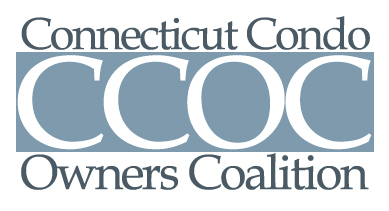Ask Atty. George: Do State Condo Laws Apply To Coops?
Atty. George:
As an owner in a cooperative in Connecticut, can you tell me if the Connecticut Common Interest Ownership Act applies to us?
The Common Interest Ownership Act covers cooperatives (CIOA, CGS 47-202 through 47- 299).
The rights and protections the Act gives to Condominium unit owners it gives equally to Cooperative unit owners. For example, the rights to notice of, and participation in Association and Board meetings apply equally to Condominium unit owners and Cooperative unit owners.
CIOA has slightly different provisions regarding a few issues due to the different nature of the ownership interest involved. A “Cooperative” is a Common Interest Community in which the real property is owned by an Association, each of whose members is entitled by virtue of his ownership interest in the Association to exclusive possession of a unit (CGS 47-202(12)). Thus a Cooperative owns all the real estate. A unit owner in a Cooperative owns a share of the Cooperative and has an exclusive right to occupy and possess his or her unit under a proprietary lease with the Association.
A “Condominium” is a Common Interest Community in which portions (units) of the real property are designated for separate ownership and the remainder of the real property is designated for common ownership solely by the owners of those portions (CGS 47-202(10)). Thus, a unit owner in a Condominium legally owns title to his or her unit and has an undivided ownership right in the common elements with the other unit owners.
Condominiums and Cooperatives are treated differently only in a few sections of CIOA. For example, In a Cooperative, unit owners’ interests in their units and their allocated interests are taxed and assessed as a whole and a unit owner’s interest is not separately taxed, whereas a Condominium unit owner’s unit and interest is separately assessed and taxed (CGS 47- 204). Other examples of different treatment because of the different nature of the ownership interest include certain issues involving the relocation of unit boundaries (CGS 47-231), the termination of the Common Interest Community (CGS 47-237), the addition of land or units to limited equity Cooperative (CGS 47-237); the conveyance of common elements (CGS 47-254) and the release of liens (CGS 47-252).
Attorney George Coppolo of Hartford is a member of the Connecticut Condo Owners Coalition’s board of advisers.







Is there a CT law stating a Co-Op consisting of 3 bedrooms can be purchased by a person with a household of 2?
In a cooperative, who is responsible for trimming or removing dead or dying trees, the unit owner or the coop?
what do your bylaws say?
Does Chapter 595 of the corporations Law also apply to housing cooperatives?